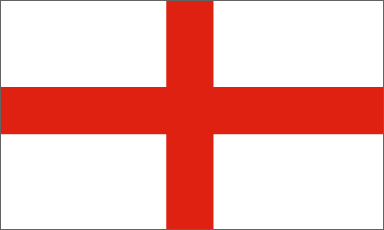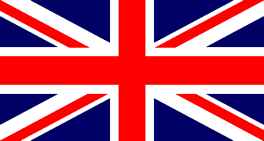Basic facts
Geography
England is an island country situated in North-West Europe, on the island of 'Great Britain'.
Great Britain is made up of 3 countries - England, Scotland, and Wales.
Covering two-thirds of Great Britain, England is the largest country on the island.
France, on mainland Europe, is approx 35 kilometres away from the island of Great Britain and since 1994 has been joined to the island via an undersea rail network called the Channel Tunnel.
The Channel Tunnel runs from Folkestone in the county of Kent ( Southern England) beneath the English Channel, to arrive at Coquelles near Calais in northern France.
At 31.4 miles (50.5 km) it is the second longest undersea tunnel in the world, Japan's Seikan Tunnel being the longest at 33.49 miles.
Climate
England's weather can be summed up in two words - mild & varied. One minute it can be gorgeous sunshine, the next it can be cloudy, cold and raining. Even on extremely sunny days during summer, if someone goes out they will usually 'take a coat just in case' for the weather is so unpredictable and can change at any moment. This unpredictability also makes England's weather extremely interesting and frequently talked about.
The warmest part of the country is the South, with Faversham in Kent having the highest ever recorded temperature of 38.5C (101.3F) on the 10th August 2003.
During the winter months the warmest parts of England are along the South, and South-West, particularly the counties of Devon and Cornwall and around the London area.
The Lake District, one of the most scenic regions of England, is also the wettest.
The bottom line is, if you plan on visiting England or any other part of Britain, always come prepared for any kind of weather.
Population
In 2005 the population of England was approximately 50.4 million.
Most of England's population lives in or around its major cities such as London (7.5 million).
Population Facts & Figures
- In the 1600's the population of Britain (England, Scotland, and Wales combined) was just over 4 million. It is now over 60 million
- London is the most populous city in the European union with over 7 million residents. It is home to around 12% of the UK population.
Flag of England
England's flag is the St George's cross

The St George's Cross is the national flag of England
The Union Jack (below) is the flag of the UK. It is a symbol of the administrative union of the countries of the United Kingdom.

The Union Jack - Flag of the UK
Government of England
"There is a forgotten, nay almost forbidden word, which means more to me than any other. That word is England". - Sir Winston Churchill
There is no government just for England, and hasn't been since 1707. The government, although seated in London, is in fact a UK government.
The UK government is known as a 'Constitutional Monarchy' and a 'Parliamentary Democracy'.
A 'Constitutional Monarchy' can be defined as a King or Queen that reigns over a country, but does not govern it. Our Queen is head of state, but does not run the country.
A 'Parliamentary Democracy' is one in which the people choose representatives at regular elections to govern the country.
Key facts to remember -
- The Queen of England, Elizabeth II, is head of state, and does not govern the country.
- The people of the UK vote for a political party such as Labour, Conservative, or Liberal Democrats, and whoever is leader of the party that gets the most votes is then appointed by the queen to be the Prime Minister.
- The houses of Parliament is where politicians meet to discuss and decide the laws of the UK. There are three sections: the House of Commons, the House of Lords, and the Monarchy. New laws have to go through both the house of commons and the house of lords, then the Queen as head of state signs any laws that parliament has voted for. She can reject a law, though this hasn't happened since the reign of Queen Anne who reigned between 1702 and 1714.
Currency of England
The currency of England and Britain is officially called Pounds Sterling.
The currency sign is the pound sign: £
A pound is made up of 100 pence. (pence is plural of penny)
Coins currently in circulation (copper, silver and gold)-
1p (one penny), 2p, 5p, 10p, 20p, 50p, £1 (one pound)
Notes currently in circulation -
£5, £10, £20, £50, £100
Zdroj: www.picturesofengland.com/englandfacts/